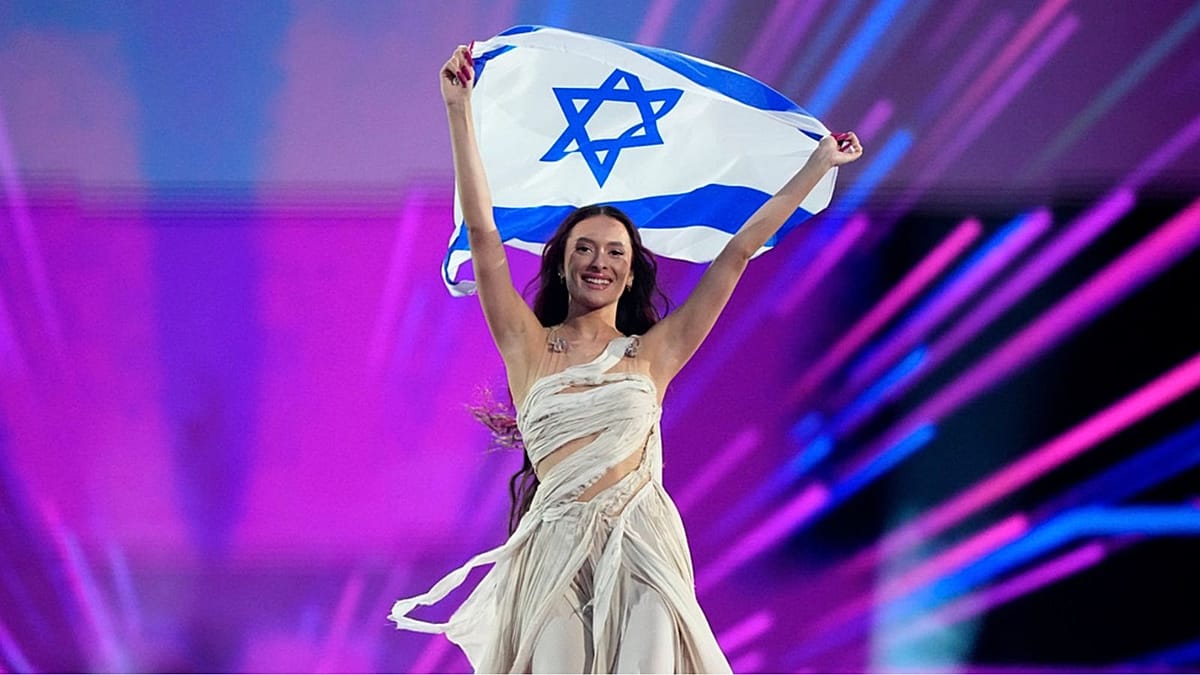Published on
The Eurovision Song Contest is changing rules around voting and promotion following the controversy caused by Israel’s result at this year’s competition and allegations of “interference” by the Israeli government.
This comes after several countries requested an audit after Israel topped the public vote at the contest in May. Israel finished second in this year’s competition once the jury votes were taken into consideration.
The European Broadcasting Union (EBU), which runs the music extravaganza, said that the changes ahead of next year’s edition in Vienna were “designed to strengthen trust, transparency and audience engagement.”
“We’ve listened and we’ve acted,” said Eurovision director Martin Green. “The neutrality and integrity of the Eurovision Song Contest is of paramount importance to the EBU, its members, and all our audiences. It is essential that the fairness of the Contest is always protected.”
As part of the new Eurovision measures, the number of votes per payment method will be reduced by half to 10, the EBU said.
In addition, “professional juries” will return to the semifinals for the first time since 2022 – a move that will give roughly 50-50 percentage weight between audience and jury votes.
The number of jurors has been increased from five to seven, all of whom will be forced to sign a formal declaration confirming they will vote independently and impartially. Jurors aged 18-25 will also be added to “reflect the appeal” of the contest with younger audiences.
Organizers will also enhance safeguards to thwart “suspicious or coordinated voting activity” and strengthen security systems that “monitor, detect and prevent fraudulent patterns,” EBU said.
The EBU is also barring its participating broadcasters and artists from “actively” engaging in, facilitating or contributing to promotional campaigns by third parties “that could influence the voting outcome and, as outlined in the updated Code of Conduct, any attempts to unduly influence the results will lead to sanctions.”
News of the changes arrives a month after EBU postponed a vote on whether Israel should be allowed to perform in next year’s Eurovision.
Israel has competed in Eurovision for more than 50 years and won four times. However, calls for Israel to be kicked out have intensified due to the actions of Benjamin Netanyahu’s government in Gaza.
Spain became the first of the ‘Big Five’ – the five countries that make the biggest financial contributions to EBU and which are granted immediate progression to the Eurovision finals every year – to threaten their absence next year should Israel be on the line-up.
Other countries that have pledged to boycott Eurovision if Israel continues to participate include Ireland, Iceland, Slovenia and the Netherlands, whose public broadcaster AVROTROS – citing human suffering in the Gaza war – said that it could no longer justify Israel’s participation in the contest.
The Dutch broadcaster also said there had been “proven interference by the Israeli government during the last edition of the Song Contest, with the event being used as a political instrument.”
Previously, more than 70 former Eurovision contestants signed an open letter calling for Israel and its national broadcaster KAN to be banned. This year’s winner, JJ, has also called for Israel to be banned from competing in 2026.
While Eurovision is supposedly apolitical, the EBU excluded Russia from the competition shortly after its invasion of Ukraine in 2022. However, Israel has continued to compete over the past two years despite international concerns over its actions in Gaza.
The EBU’s general assembly takes place on 4 and 5 December and is poised to consider whether Israel can participate next year.

